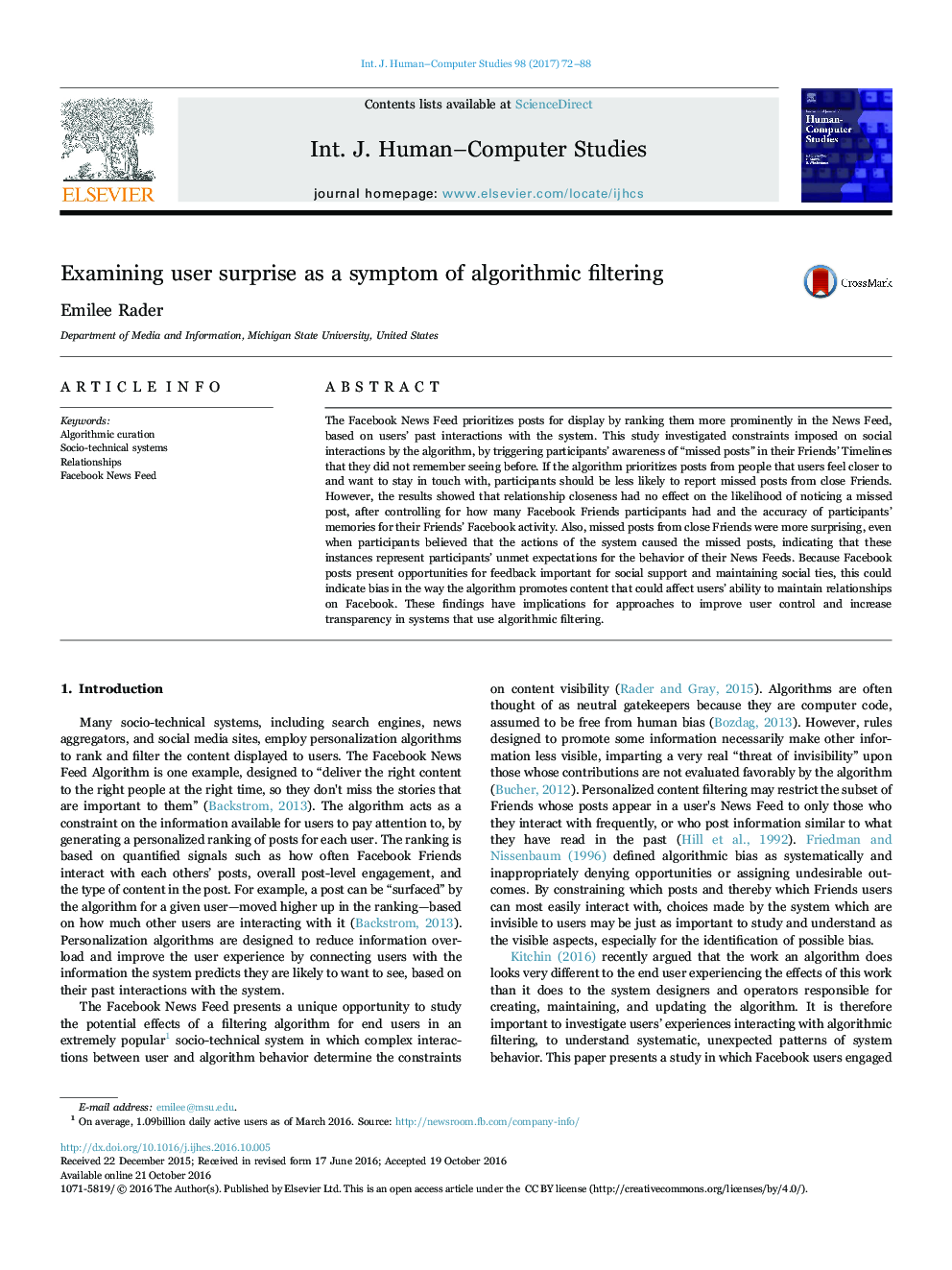| Article ID | Journal | Published Year | Pages | File Type |
|---|---|---|---|---|
| 4945842 | International Journal of Human-Computer Studies | 2017 | 17 Pages |
â¢The study examined how the Facebook News Feed algorithm constrains interaction.â¢Facebook users were prompted to notice posts from Friends that they had missed.â¢Relationship closeness did not affect the likelihood of noticing missed posts.â¢Missed posts from close Friends were more surprising, indicating unmet expectations.â¢Believing the algorithm caused missed posts was related to greater surprise.
The Facebook News Feed prioritizes posts for display by ranking them more prominently in the News Feed, based on users' past interactions with the system. This study investigated constraints imposed on social interactions by the algorithm, by triggering participants' awareness of “missed posts” in their Friends' Timelines that they did not remember seeing before. If the algorithm prioritizes posts from people that users feel closer to and want to stay in touch with, participants should be less likely to report missed posts from close Friends. However, the results showed that relationship closeness had no effect on the likelihood of noticing a missed post, after controlling for how many Facebook Friends participants had and the accuracy of participants' memories for their Friends' Facebook activity. Also, missed posts from close Friends were more surprising, even when participants believed that the actions of the system caused the missed posts, indicating that these instances represent participants' unmet expectations for the behavior of their News Feeds. Because Facebook posts present opportunities for feedback important for social support and maintaining social ties, this could indicate bias in the way the algorithm promotes content that could affect users' ability to maintain relationships on Facebook. These findings have implications for approaches to improve user control and increase transparency in systems that use algorithmic filtering.
